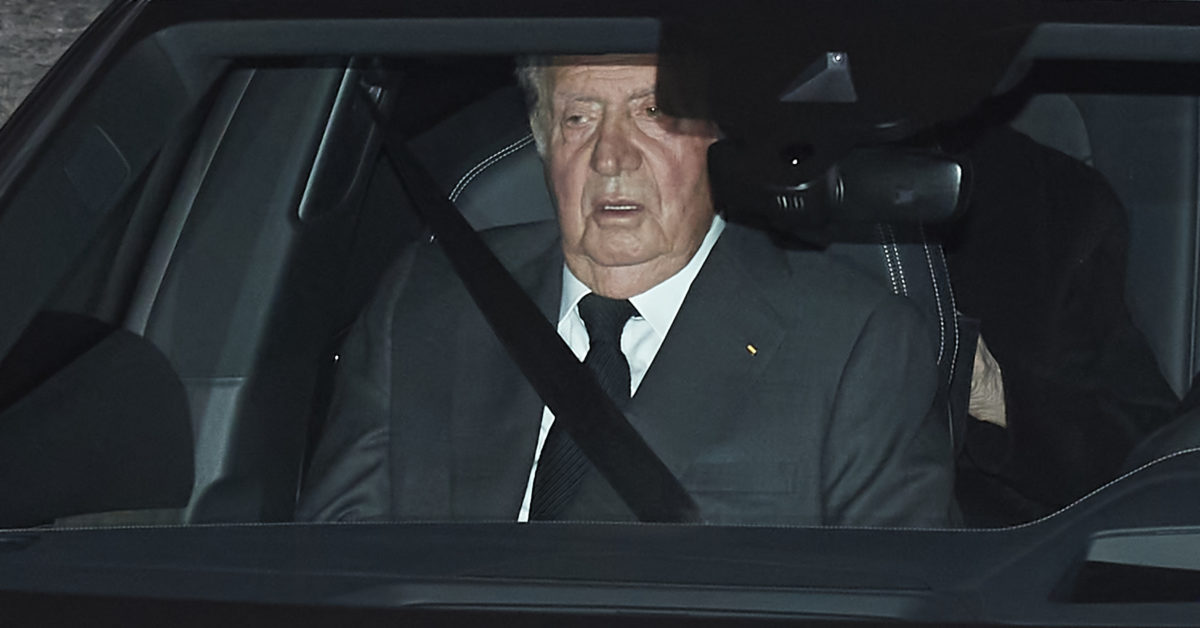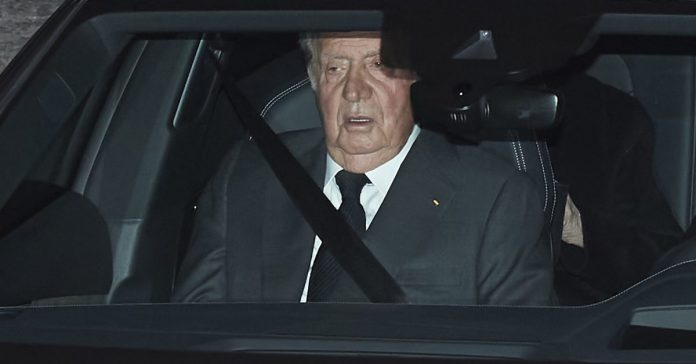
MADRID — A scandal involving a king, his lover, tens of millions of euros and an infamous hunting trip caused a political storm in Spain and enormous damage to its monarchy.
In the end, the pressure on the royals proved too much for Juan Carlos I, who announced on Monday that he was leaving the country because of the “public repercussions of certain past developments of my private life.”
Juan Carlos is facing two investigations. One is in Switzerland, where prosecutors are investigating €65 million he received from Saudi Arabia via an offshore account and linked to a high-speed rail project. The other, a probe by prosecutors at Spain’s Supreme Court, aims to figure out if the monarch can be investigated for tax evasion and money laundering.
“Juan Carlos withdrew €100,000 a month in cash from his Swiss account between 2008 and 2012,” read a headline in the online news site El Confidencial in early July. Dozens of similar headlines appeared in the following days.
The scandal-hit former monarch, who did not reveal where he will move to, said he wanted the current king — his son Felipe VI, to whom he abdicated the throne in 2014 — to continue to carry out his job with the “tranquility and calm” required.
Prime Minister Pedro Sánchez has characterized the allegations against the former monarch as “disturbing” and “troubling.”
Juan Carlos’ decision to go into exile is the latest move to try to limit the damage to the monarchy. On March 15, just a day after Spain enacted a state of emergency to fight the coronavirus pandemic, Felipe issued a statement distancing himself from his father. He gave up all inheritance that could be tied to any unlawful funds and also canceled an annual stipend of almost €200,000 to Juan Carlos.
But it’s unlikely the scandal will disappear when the former king packs his bags and heads abroad — if he hasn’t already done so.
“Thieves! Thieves!” hundreds of protesters shouted during a protest against the “corrupt monarchy” on July 24 in Madrid. A republic “will not be achieved with a change to the constitution. It has to be proclaimed in the streets, as in 1931,” said Javier Lázaro, one of the protesters, in reference to the Second Republic that Francisco Franco ended with a military uprising.
Political storm
The scandal is unfolding with the leftist Podemos party as the minority partner in the Socialist-led coalition government. One of its main proposals has been to call for a referendum on the future of the monarchy.
Pablo Iglesias, the leader of Podemos and one of the country’s four deputy prime ministers, said after the scandal erupted that a “federal republic” was possible in the mid or long term. Irene Montero, minister of equality, has gone further, saying that corruption is difficult to separate from the House of Bourbon.
Spain’s Socialist Party has deep republican roots but in practice, it defends the status quo: It has rejected all proposals for a parliamentary inquiry into Juan Carlos’ alleged misdeeds, as requested by Podemos and Catalan and Basque pro-independence parties.
“Podemos can use this issue as wedge politics against the Socialists, because the figure of the king is divisive for the left,” said political scientist Lluís Orriols from University Carlos III of Madrid. “Twenty years ago, the institution lived up to the expectations of symbolic representation of the unity of Spain and had good approval ratings across all the political spectrum … Now, a big part of the left and some territories strongly reject it.”
Prime Minister Pedro Sánchez has characterized the allegations against the former monarch as “disturbing” and “troubling.”
“The Socialist Party is a pro-republic party, which lost the civil war defending the Second Republic,” said Eduardo Madina, a former Socialist lawmaker. “But it also defends the constitutional pact of 1978 that allowed Spain to transition from dictatorship to democracy in the form of a constitutional monarchy.”
The political right has defended the job done by the current monarch. Felipe boosted his standing among Spanish conservatives and the far right with a pro-union speech after the Catalan independence referendum in 2017. Pablo Casado, leader of the conservative Popular Party (PP), has urged the prime minister “to stop playing with the monarchy” and Santiago Abascal, leader of the far-right Vox, accused Sánchez of wanting to take over as head of state.
“I know both kings very well, and they do everything for Spain and for the monarchic institution,” said former foreign minister and current MEP José Manuel García-Margallo, from the PP. “Juan Carlos I could have ruled the country, but renounced his powers after Franco died. He was also the best ambassador for the country in South America, Maghreb and Arab countries.”
The elephant in the room
Juan Carlos’ fall from grace began in Botswana in 2012.
The monarch, then aged 74, and Corinna Larsen, a 47-year-old Danish businesswoman and the king’s long-term lover, were on safari when the king fell and broke his hip. He was rushed by plane back to Spain for emergency surgery.
Photos of the safari soon emerged, showing the monarch holding a rifle and proudly posing next to a dead elephant. Spain was at the time heading into its worst economic crisis in decades and the country had a youth unemployment rate of around 50 percent.
Images of the head of the state on an expensive safari with his lover did not go down well. Days after the surgery, he emerged from the hospital and said: “I’m sorry, I was wrong. It will never happen again.”
It wasn’t the first scandal involving the royal family. A couple of years earlier, Princess Cristina (the youngest daughter of Juan Carlos and Queen Sofía) and her husband, Iñaki Urdangarín, were prosecuted for fraud. He got a five-year prison sentence and she was stripped of her title.
In 2014, two years after the Botswana incident, Juan Carlos abdicated to make way for his son, who became Felipe VI.
With the abdication came the end of the affair with Larsen.
“The Corinna affair was passion in old age,” said José Antonio Zarzalejos, a leading royal journalist. “He was an ailing older man, bored of his duties, alone; she was a beautiful woman, worldly, young.”
According to Larsen, Juan Carlos asked her to give back the €65 million he had given to her as a “love gesture.” Years later, it all started to appear in the press: documents, receipts, conversations — and with that, the monarch’s enormous political legacy began to erode.
“He has been a magnificent king and played an impeccable role as monarch,” said journalist Victoria Prego, an expert on the years of political transition after Franco. “For reasons beyond my understanding, he ruined his place in Spanish history.”
The post Former King Juan Carlos heads into exile having shaken Spain appeared first on Politico.







